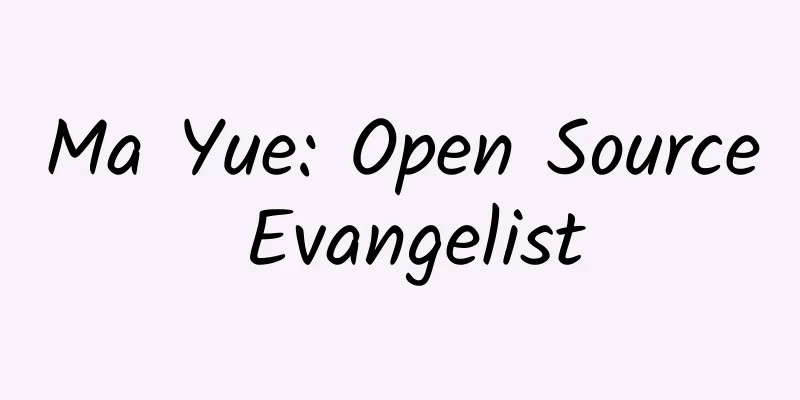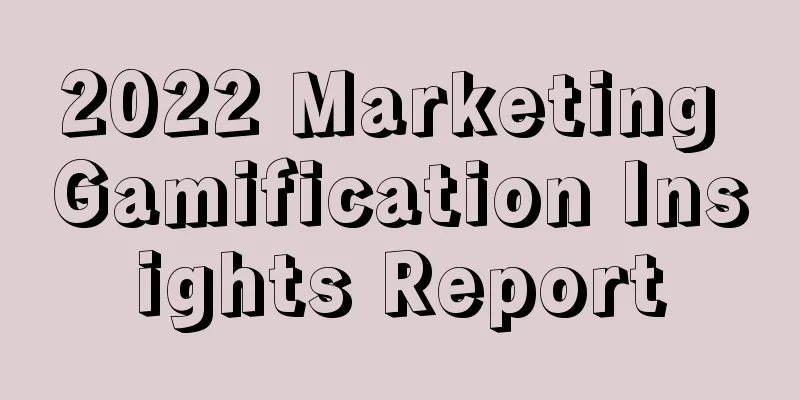Ma Yue: Open Source Evangelist

|
Ma Yue doesn't look like a company CEO, but more like an evangelist. On November 23, at the OSC Open Source Technology Year-End Ceremony, Ma Yue gave a speech titled "The Ambition of Open Source China". "Hello, everyone, my name is Ma Yue. It's very easy to remember. Once you meet me, things will get better and better." This opening remark, as always, is also his hope for open source technology.
Open Source Veterans Ma Yue calls himself an open source veteran: in 2007, he left the United States where he had worked for nine years and returned to China to promote the application and development of open source technology. At that time, the situation of open source technology in China was like a messy battlefield. In the interview, Ma Yue told the reporter such a joke: in 2007, he returned to China to start a business and planned to promote open source technology in the enterprise. However, when he talked about open source with CIOs, 99% of the answers were, "Do I need you to tell me about open source and cost reduction?" In fact, as early as 2006 and 2007, the situation of open source technology abroad was in full swing. On October 30, 2009, Computer World in the United States wrote that the White House website had completely adopted the open source platform, and even the US Department of Defense, which had always adhered to its own software, opened the door to open source software. Obama's support for open source also made the outside world call him the "Open Source President". At that time, many CIOs in China had not yet learned about open source technology. In China, programmers always call themselves programmers and code farmers. Ma Yue said that there are no code farmers in the United States. According to a recent report by BI, the average annual salary of software engineers in the United States has reached 100,000 US dollars. Such a figure is enough to realize the American dream of a house, two cars, a wife and two children. "And we are holding such an open source conference in a five-star hotel today. Some participants think it is a luxury. The original theme of the conference was to go to code farmers, but later we thought about it and called it wishing all developers in the world success." Ma Yue said. The explosion of Internet thinking and open source In 2006, when open source technology exploded in the US, Ma Yue returned to China to start a business. He believed that after several years of market cultivation in China, open source technology was finally about to explode. Ma Yue smiled and said, "When will open source technology explode? This is a question that is both sweet and bitter. I can only say that it is finally about to explode. I said this four years ago and two years ago. Now we are facing an inflection point. The emergence of the inflection point is not due to open source technology itself but the rapid development of the Internet." In the past, we made products, so we needed large and comprehensive software, but in the Internet era, we need fast-iterating applications. Open source technology can help companies achieve fast iteration. In the Internet age, everything is a race against time. We can no longer use the thinking of science and engineering men to make software products. In the past, we made a large and comprehensive product, which took about half a year to a year from planning to implementation. Now, the speed required in the Internet age is to submit a request on Monday, start development on Tuesday, and go online on Friday. Hope Many students in Chinese universities use open source software such as Notepad, but few know about open source technology. We call Ma Yue an open source evangelist because he wants to promote the open source technology he loves to university campuses. Ma Yue believes that college students can quickly become developers who master the power of open source. This is because college students have plenty of time to study, and secondly, they have enthusiasm and passion, which is also the driving force for all innovation. These two points can encourage college students to embrace open source. Many great software in the world are written by college students. Ma Yue believes that popularizing open source technology in colleges and universities is the unshirkable responsibility of the Open Source China Community. "Although campus promotion is a difficult, dirty, and tiring job that will not bring much commercial benefits, we still hope to do this out of responsibility. We hope to do some activities to promote open source technology in 50 universities across the country next year." When asked how long it would take for Chinese technology to surpass the United States, Ma Yue said that instead of considering how long it would take to catch up with the United States, it would be better to consider how many local developers can be attracted to join the open source family in one year. "I hope that in 2015 our community can attract another 500,000 to 1 million users (currently the open source Chinese community has 2 million registered users), and in three years this number can reach 5 million, so that half of our Chinese developers can become open source professionals." "I was particularly excited when I read a speech by Premier Li Keqiang some time ago. He said that Chinese society is moving from the past demographic dividend to a talent dividend stage. I think this is people-oriented. In the past, we relied on blood and sweat to do handicraft processing and built a Made in China product for the whole world. This is the contribution of all our demographic dividend. Now this era is about to pass, and it will become an era of talent dividend. The wisdom of the Chinese people is endless, and the spring of programmers is coming. When developers are all invested in the field of open source technology, proficient in using open source technology, and carry out innovation and creation, then it may lay the foundation for China to become a world software power in the future." Ma Yue said at the end of the interview. |
<<: Lollipop 5.0: Eight ways to reinvent Android
>>: WeChat’s new killer feature—“Nearby Businesses”
Recommend
Can plant roots also grow upward? Scientists explain new mechanism of plant gravity perception
Produced by: Science Popularization China Author:...
Heavy rain! Red alerts issued in many places! How to prevent and respond to disastrous weather scientifically?
Heavy rain is coming! Since May 2, the heaviest r...
How to take good care of the elderly at home in autumn?
As the saying goes, "the more autumn rain fa...
Coocaa System 7.0 Review: The large-screen ecological interactive experience that opens up smart life starts here
In the past ten years, the televisions sitting in...
I thought it was a stomach problem, but it turned out to be a myocardial infarction! During the rainy season, be alert to this symptom!
In recent days, at Zhejiang Provincial People'...
Are shared bikes doomed to fail?
The closure of shared bikes has not slowed down pe...
A movie resource project suitable for beginners, with 0 cost and daily income of 100+
Recently, many new movies have been released on m...
Why can't opponents follow suit in the protracted battle that Liang Jun is leading LeTV Super TV to fight?
2017 has become a big year for the development of...
Information flow advertising is on the rise, and new ways of Internet marketing are emerging in the era of self-media
In the past one or two years, with the rapid deve...
British drama film "Nymphomaniac" series 2 (2013) extended version HD English subtitles Baidu cloud download
British drama film "Nymphomaniac" serie...
What is the upper limit of human height?
From ancient times to the present, height has alw...
Old Secretary: "Learn and Use Institutional Emotional Intelligence Course"
Training course content: Many young people will b...
AppTalk: How to build an efficient entrepreneurial team and high-quality apps?
Beijing is a city full of entrepreneurial atmosph...
KPMG: Global Finance Adoption of AI Report
KPMG’s report shows that despite investments acro...
Product Operation: How to cold start a product? Share 4 steps!
The product has just been launched and needs a co...





![Dapeng Education-[Teacher Jia] C4D Design Master Class](/upload/images/67cbfe90d2da2.webp)



